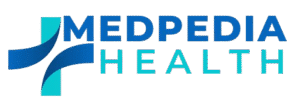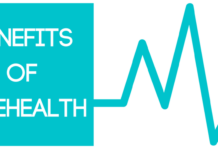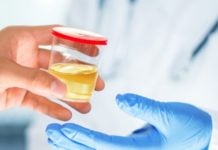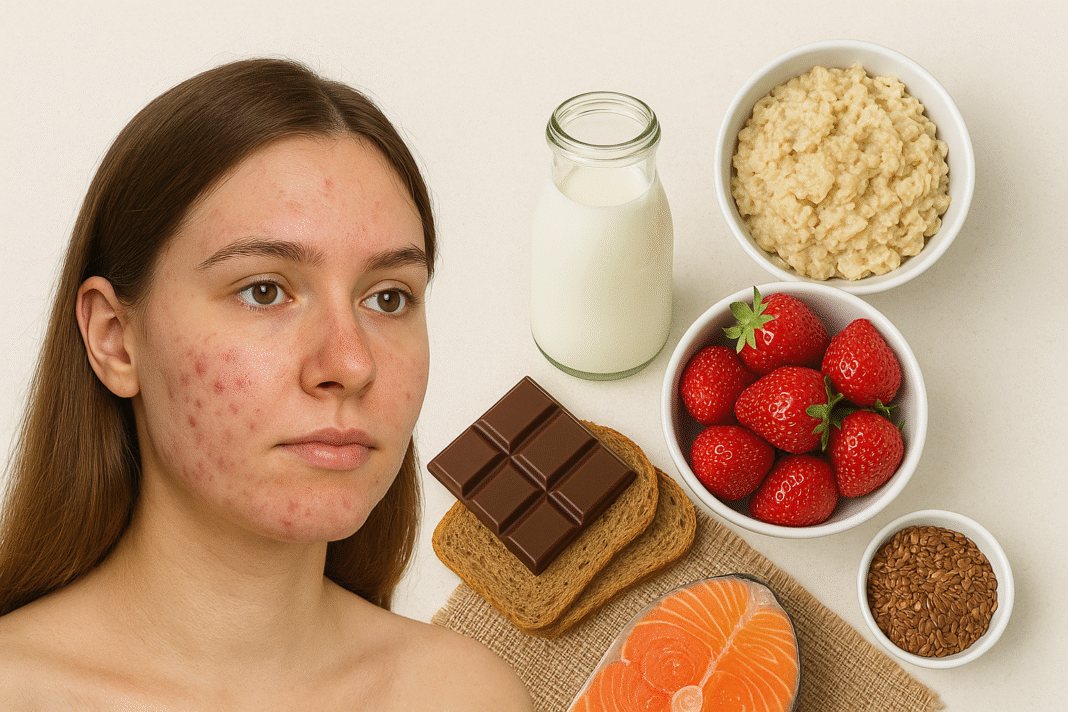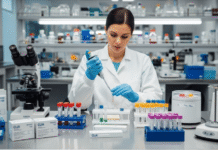Acne can feel like an unrelenting adversary, especially when hormonal changes seem to trigger flare-ups no matter what you do. Many people wonder if their diet plays a direct role in these stubborn breakouts, particularly those linked to hormones. While it’s easy to fall into the trap of blaming greasy food or chocolate, the science behind hormonal acne and diet is more nuanced. Let’s unpack what research truly reveals about how your eating habits influence hormonal acne and what you can realistically do to manage it.
What Is Hormonal Acne?
Hormonal acne typically appears along the jawline, chin, and lower cheeks, often worsening cyclically with menstrual cycles in women or during puberty in both sexes. It results primarily from fluctuations in androgen hormones, such as testosterone, which stimulate excess sebum (oil) production. This excess oil clogs pores, encouraging inflammation and bacterial growth, leading to pimples, cysts, and sometimes painful nodules.
While hormones are the main culprit, other factors like genetics, skincare routines, and yes, diet can influence the severity and frequency of hormonal acne.
The Diet-Acne Connection: A Historical Perspective
For decades, dermatologists often dismissed diet as a significant contributor to acne, citing early studies from the mid-20th century that showed no clear link. However, more recent research has begun to challenge this notion, revealing that certain foods may indeed exacerbate or alleviate acne by impacting hormone levels and inflammation.
Foods That May Influence Hormonal Acne
- High Glycemic Index (GI) Foods
High GI foods, such as white bread, sugary snacks, and sodas, cause rapid spikes in blood sugar. This, in turn, triggers a rise in insulin and insulin-like growth factor 1 (IGF-1). Both insulin and IGF-1 increase androgen production and sebum secretion, contributing to acne development (Smith et al., 2007).
A landmark randomized controlled trial by Smith et al. (2007) showed that young men consuming a low-GI diet experienced fewer acne lesions compared to those eating high-GI foods. The study suggests that moderating carbohydrate intake can help regulate hormones associated with acne.
- Dairy Products
The relationship between dairy and acne remains somewhat controversial but has gained increasing scientific attention. Dairy consumption especially skim milk has been associated with higher acne prevalence in several observational studies. Researchers believe dairy may influence acne through hormones present in milk or by raising insulin and IGF-1 levels (Melnik, 2011).
A meta-analysis by Aghasi et al. (2019) confirmed a positive correlation between milk intake and acne risk, though the exact mechanisms are still under investigation. If you suspect dairy aggravates your acne, consider trying an elimination period to see if symptoms improve.
- Foods Rich in Omega-3 Fatty Acids
Conversely, foods rich in omega-3 fatty acids (like salmon, flaxseeds, and walnuts) may help reduce inflammation and improve acne severity. Omega-3s can decrease pro-inflammatory cytokines and have been shown to improve acne outcomes in some small clinical trials (Barbieri et al., 2017).
- Chocolate
Chocolate is often blamed for acne flare-ups, but research has not conclusively confirmed this link. Some studies suggest that pure cocoa itself may not worsen acne, but chocolate products high in sugar and dairy could contribute indirectly (Kwon et al., 2019).
What About Hormonal Diets?
Certain diets like low carb, paleo, or dairy-free plans are popular among those battling hormonal acne. While clinical evidence supporting these diets is limited, many people report subjective improvements. These diets often reduce insulin spikes and inflammation, which could benefit acne sufferers.
Practical Takeaways: How to Use Diet to Manage Hormonal Acne
- Focus on Low-GI Foods: Incorporate whole grains, legumes, fruits, and vegetables to maintain steady blood sugar levels.
- Moderate Dairy Intake: If you notice flare-ups after consuming milk or cheese, consider reducing or temporarily eliminating them.
- Boost Anti-Inflammatory Nutrients: Include foods rich in omega-3s, antioxidants, and vitamins A, C, and E.
- Stay Hydrated: Water helps maintain skin health and supports detoxification.
- Avoid Highly Processed Foods: Cut back on sugary snacks, fast food, and excessive refined carbs.
- Consult a Professional: If your hormonal acne is severe or persistent, see a dermatologist or nutritionist who can help tailor treatment plans.
Beyond Diet: A Holistic Approach to Hormonal Acne
While diet influences hormonal acne, it is not the sole factor. Genetics, stress, sleep, skincare products, and underlying medical conditions all play roles. Managing acne often requires a multi-pronged approach, including hormonal therapies, topical treatments, and lifestyle modifications.
Science shows that what you eat can impact hormonal acne, but it’s rarely about one “miracle” food or quick fix. Instead, adopting a balanced diet focused on low-glycemic foods, healthy fats, and reduced dairy may help regulate hormone-driven breakouts and promote clearer skin. Patience and consistency, combined with professional guidance, are key to managing hormonal acne effectively.
References
- Aghasi, M., Firooz, A., Dabbaghmanesh, M. H., & Ziaee, V. (2019). Association of dairy intake with acne: A systematic review and meta-analysis of observational studies. Dermatologic Therapy, 32(6), e13037. https://doi.org/10.1111/dth.13037
- Barbieri, R., Raichi, M., & Miyamoto, T. M. (2017). Effects of omega-3 supplementation on clinical and inflammatory biomarkers in patients with acne vulgaris: A randomized controlled trial. Clinical Nutrition ESPEN, 22, 13–19. https://doi.org/10.1016/j.clnesp.2017.05.007
- Kwon, H. H., Yoon, J. Y., Suh, D. H., & Jung, J. Y. (2019). Is chocolate related to acne? A review. Annals of Dermatology, 31(6), 627–631. https://doi.org/10.5021/ad.2019.31.6.627
- Melnik, B. C. (2011). Milk consumption: Aggravating factor of acne and promoter of chronic diseases of Western societies. Journal of the German Society of Dermatology, 9(7), 419–423. https://doi.org/10.1111/j.1610-0387.2011.07611.x
- Smith, R. N., Mann, N. J., Braue, A., Mäkeläinen, H., & Varigos, G. A. (2007). A low-glycemic-load diet improves symptoms in acne vulgaris patients: A randomized controlled trial. American Journal of Clinical Nutrition, 86(1), 107–115. https://doi.org/10.1093/ajcn/86.1.107
